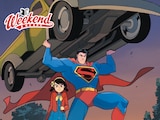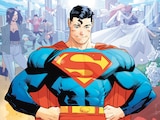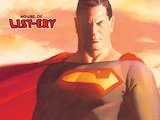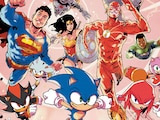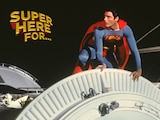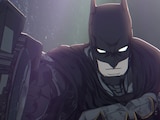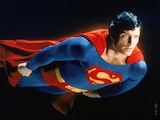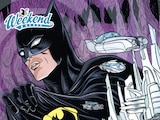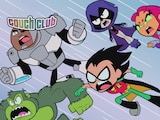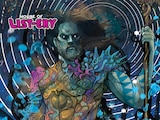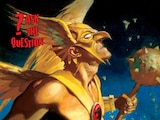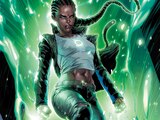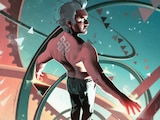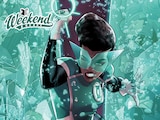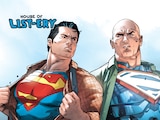I only got to meet Keith Giffen once, at a sparsely attended convention in Florida in the late 2010s. He was the centerpiece of a sleepy morning panel he almost hadn’t attended. Knowing I might never get an opportunity like this again, I traded questions with Keith from the microphone for about forty minutes, and twenty minutes more afterwards when I lugged up my monstrous, eight pound 52 omnibus for him to sign. Rude? Maybe. But nobody else was jumping to the mic that morning, and I wouldn’t trade away a second.
We talked about Justice League International, about Lobo, about Legion of Super-Heroes, the Inferior Five relaunch he was working on at the time, and his entire historic career at DC. Once I got comfortable, maybe a little too comfortable, I asked Keith about Blue Beetle. Specifically, a controversial change to the character he had made in his 2016 run on the series, focusing the story on the mystical aspects of the scarab. Ten years earlier, Keith, John Rogers and Cully Hamner had completely reinvented Blue Beetle with an extraterrestrial technology origin, giving us the very popular pairing of Jaime Reyes and Khaji-Da. Now, he seemed to be changing the alien tech origin and exploring a connection between the scarab and ancient Atlantis. Why would he change the formula again when he had already hit on something that everyone loved?
The answer he gave me, in front of a room full of my peers, was unfiltered, genuine Keith Giffen:
“I’m sorry. Did you think I wrote comics for YOU?”
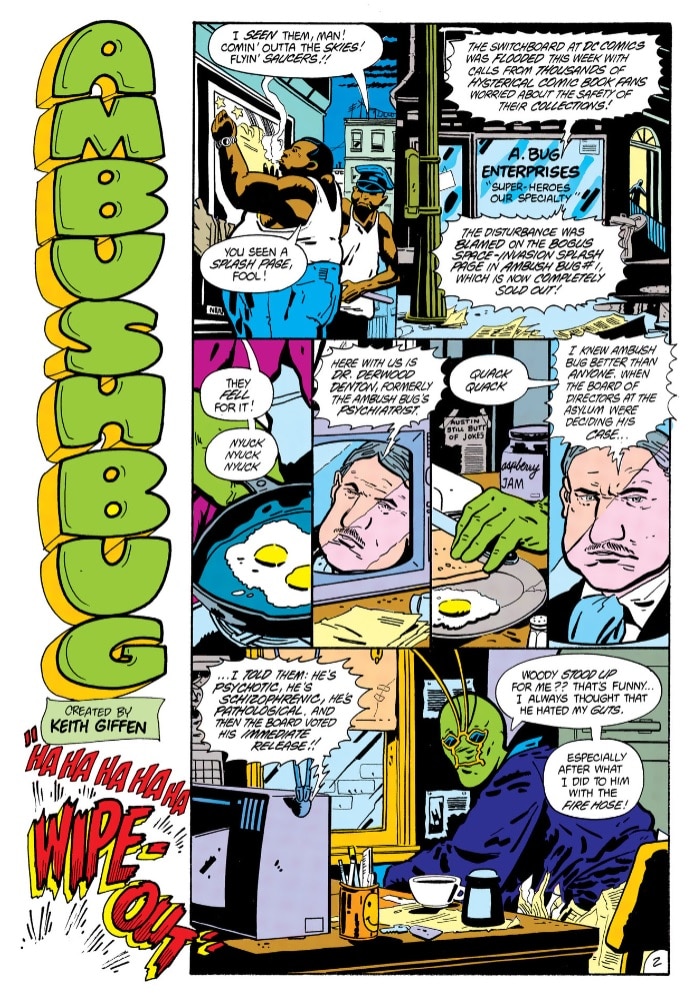
Keith Giffen, definitive Legion of Super-Heroes artist, co-creator of Lobo and creator of Ambush Bug, and irascible buddy to generations of writers, artists and editors, is perhaps best remembered as the man who reminded us that it was okay for superheroes to be funny. That superheroes ARE funny. In the times it was with him and the times it was against him, Giffen stood iconoclastically against the winds of change. He could do that, because for his entire career as a writer, whoever he was writing for, Keith Giffen only ever wrote with one audience in mind: he created the books that he wanted to read.
Keith Giffen got his start at DC as an artist in 1976, because publishers always need artists who can meet deadlines more than they need smart aleck writers. With time, he earned himself a reputation as a quick pen who could deliver any script on time, no matter how ludicrously loaded with characters—earning him a place on the notoriously packed Legion of Super-Heroes with Paul Levitz. Legion fans know Giffen as the artist on the landmark “Great Darkness Saga” event, which brought the terror of Darkseid to the 30th century. One of Keith’s favorite stories is of the existential dread he felt when he read Levitz’s description for a single panel:
“The entire population of Daxam ascends from the planet’s surface.”
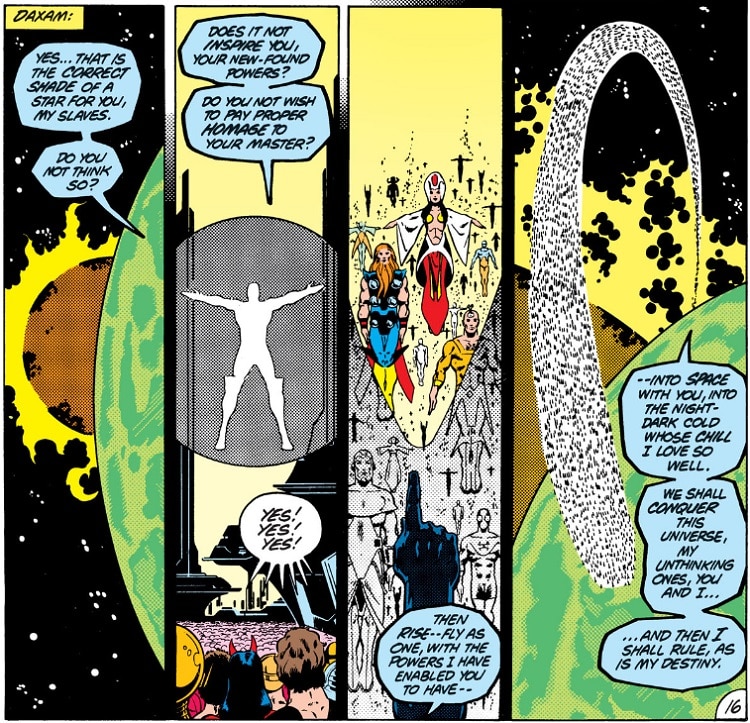
If he wasn’t aware of it before, it was here that Keith Giffen realized he had chosen a truly silly profession. But he wasn’t going anywhere, and he could get just as silly himself.
In the early ’80s, Giffen debuted a wacky character in Action Comics called Ambush Bug, an enemy for Superman in the vein of the Man of Steel’s sillier Golden Age rogues like Prankster, Toyman and Mr. Mxyzptlk. On The Omega Men, he introduced us to a grizzled “Velorpian” named Lobo, the last of his race. But it was in 1985 that Keith Giffen’s personality as a writer broke through on the Legion of Substitute Heroes Special, a one-shot comic focusing on the rejects whose powers weren’t good enough to get them into the Legion proper. Today, it reads like a rough draft for his workplace comedy treatment of the Justice League with J.M. DeMatteis and Kevin Maguire.
After Crisis on Infinite Earths, the Justice League was a sort of Legion of Substitute Heroes itself. With Superman and Wonder Woman unavailable as both of their origin stories were being revamped, and most other A-Listers otherwise occupied in similarly ambitious solo endeavors, Giffen and DeMatteis were handed a toy box lifted largely from the bargain bin. Left with a team of heroes most people at the time had never heard of, Giffen and DeMatteis leaned into the absurdity of their task by bringing the Justice League itself in on the joke. With that change of direction, Keith Giffen helped shape what many Justice League fans still consider the most memorable run in the team’s history.
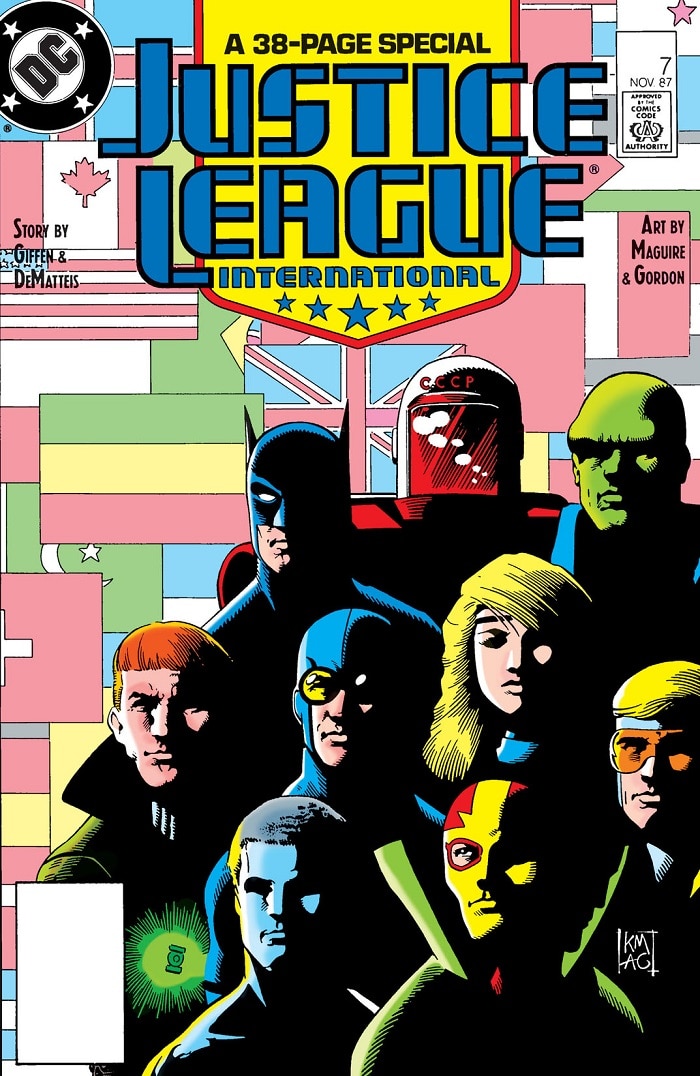
Giffen had taken the once mythic Justice League down to his level, but he was far from finished. Giffen would go on to shatter the fourth wall with the further misadventures of Ambush Bug, who was aware he was a fictional comic book character—but also, more importantly, the elements of a comic that sells. Giffen’s Ambush Bug comics are a stunt spectacular of every trick an editor has pulled to try greasing a flagging comic’s sales numbers. It’s the dirty laundry of an industry on glorious display to the reading public.
Meanwhile, hot off a guest appearance in his Justice League International, Giffen was transforming Lobo into a parody of the hypermasculine anti-hero archetype which had begun its stranglehold on the comic industry in the ’80s and ’90s. Through his exaggerated testosterone-fueled aesthetic, personality and morbidly hilarious untethered capacity for violence, Lobo was the perfect parody of an industry obsessed with being “not just for kids anymore,” yet which in many ways remained immature.
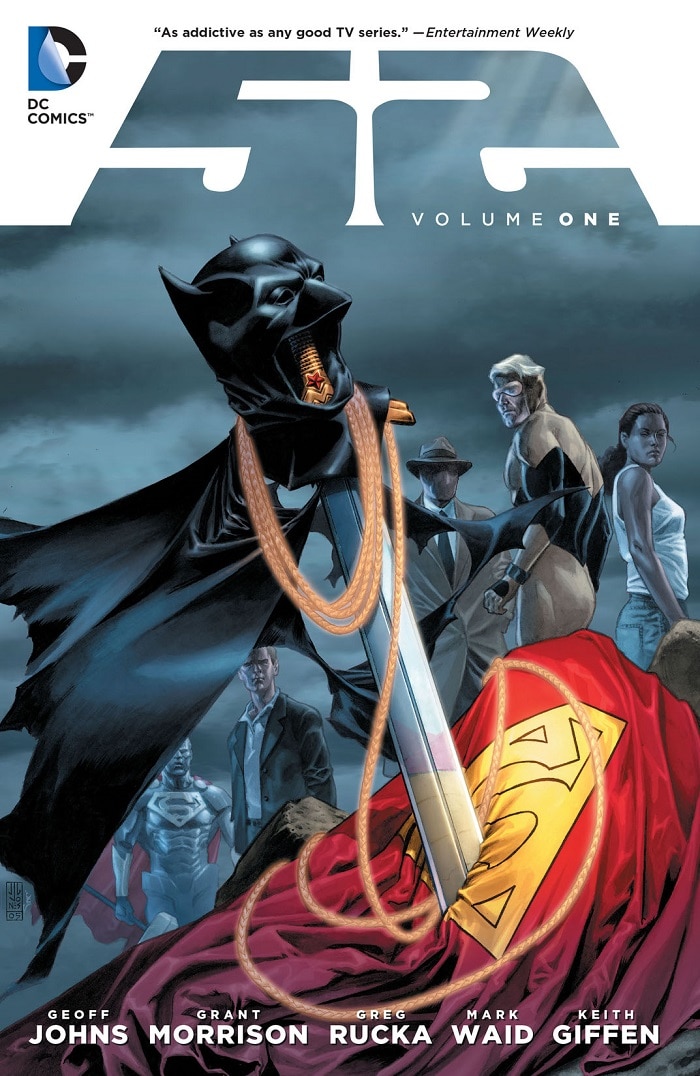
To me, though, the greatest miracle Keith Giffen ever performed was shepherding the talent of 52, the weekly, year-long comic book series from 2006 that was far too ambitious for its own good. There were a thousand reasons why it should never have worked, but relying once more on his knack for hitting deadlines, Giffen’s dutiful art breakdowns brought the far-flung series home on time every single week. When I asked Keith to sign my omnibus, he proudly called it one of the highlights of his career.
Keith Giffen was very much on the forefront of my mind this year at New York Comic Con, where the news of his passing broke a day before it started. I collected signatures from 52 colorist Alex Sinclair and one of its four writers, Geoff Johns, to join Giffen’s own on the opening credits page. Rooms packed with far more people than the one where I met Keith all mourned him together with tears and smiles.
Reviewing the convention schedule, I recalled one of Keith’s final posts on Facebook. Only weeks before he passed, Keith rolled up with his longtime friend and former DC publisher Dan DiDio to wipe the floor with a bunch of self-assured nerds at a local bar’s comic book trivia night. They never knew what hit them. In what seemed like perfect serendipity, there was another comic trivia contest happening that night at New York Comic Con. Was it entirely fair that a columnist for DC.com should enter a fan competition? Maybe not. Regardless, in Giffen’s memory, I cleaned house and embarrassed them all. (And probably myself, too.)
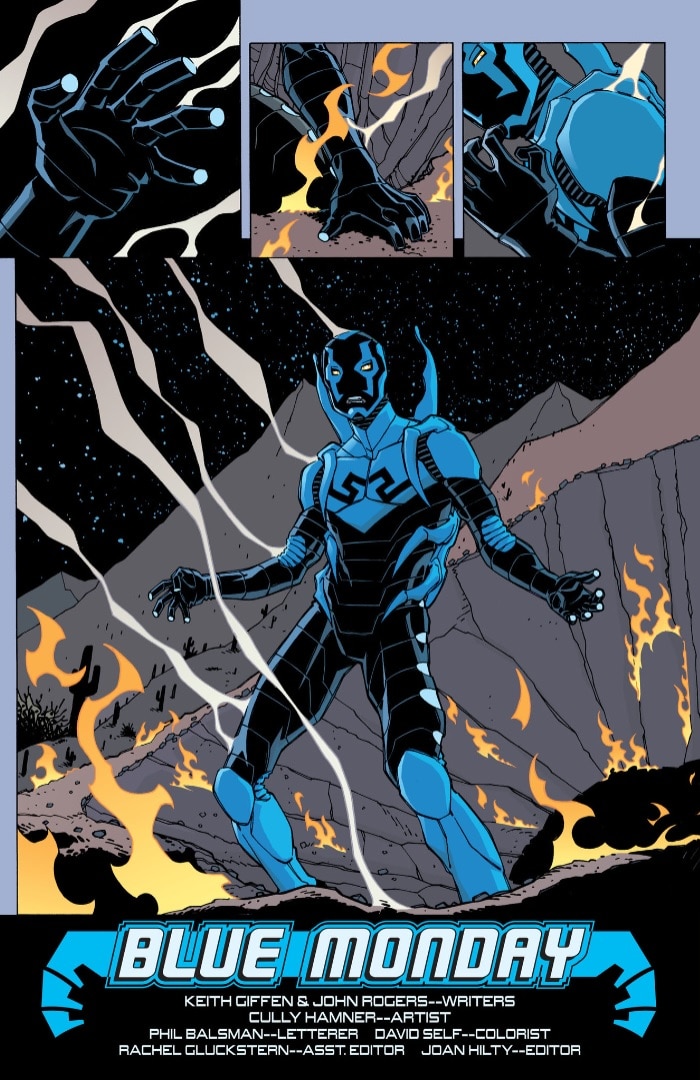
Keith Giffen did not care what we thought of him. He didn’t write comics for us. He probably would have sneered at every one of these glowing paeans to his historic career, but…I’m sorry, Keith. Regardless of who you wrote comics for, the work you created touched us all. You changed how we saw our favorite characters, how we perceived a medium, and gave us new creations to love and change further still as time and zeitgeist moves ever forward. You gave us all, a community that too often takes itself far too seriously, permission to laugh at each other and ourselves. This isn’t a “gotcha.” Who has the last laugh never mattered. What really counts is when we get to laugh together.
Bwa-ha-ha.
Alex Jaffe is the author of our monthly "Ask the Question" column and writes about TV, movies, comics and superhero history for DC.com. Follow him on Bluesky at @AlexJaffe and find him in the DC Community as HubCityQuestion.
NOTE: The views and opinions expressed in this feature are solely those of Alex Jaffe and do not necessarily reflect those of DC Entertainment or Warner Bros., nor should they be read as confirmation or denial of future DC plans.

